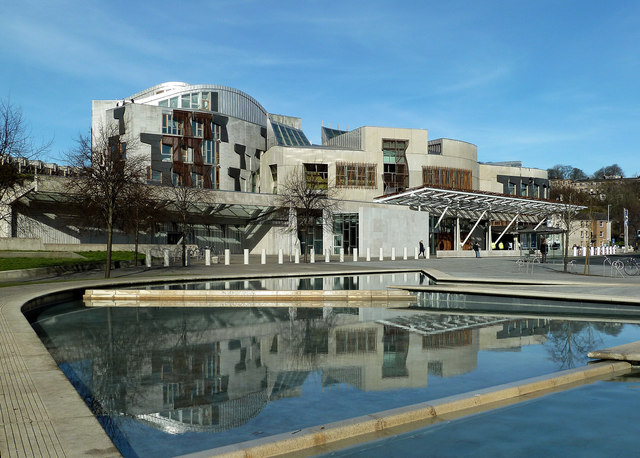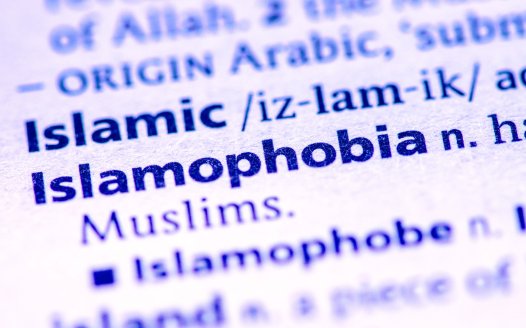Scotland’s new hate speech law will be too censorious
Posted: Thu, 7th May 2020 by Chris Sloggett
A new offence of 'stirring up hatred' on religious grounds is too restrictive of free speech, says Chris Sloggett.
A couple of weeks ago it emerged that the Scottish government had brought forward a proposal to abolish the blasphemy law as part of its newly-proposed bill on hate crime.
The National Secular Society and others have long lobbied for this, largely to send a signal about the permissibility of criticising religion and to show solidarity with those persecuted under active blasphemy laws worldwide. Ministers appear to have accepted these arguments and decided it should be removed from the statute book.
That's the good news. But nobody has been prosecuted under Scotland's blasphemy law since 1843. And the bill has worryingly created the risk that new offences relating to religious hatred will enact a de facto clampdown on freedom of expression.
The bill would create a range of new 'stirring up hatred' offences – including 'stirring up hatred' on the basis of religion. It's already an offence in Scotland to 'stir up hatred' on some other grounds – such as race and nationality. Now the Scottish government, which is concerned by the growth of bigoted attitudes, wants to expand it.
The crime of 'stirring up hatred' is similar to an offence which applies in England and Wales under the Racial and Religious Hatred Act 2006. But the title of the offence is vague and likely to be weaponised to restrict debate: accusations of 'stirring up hatred' are ten a penny on social media alone. It also sends a confusing message about the reach of criminal law. It isn't a crime to hate, so why should it be a crime to encourage others to hate?
And 'stirring up hatred' offences have a paradoxical effect: they give the state too much power while making it harder to do the job we expect it to do. Consider the response to Boris Johnson's infamous article about burka bans in 2018. During the lengthy frenzy the Metropolitan Police commissioner Cressida Dick asked experts to look into whether Johnson had committed a hate crime. Perhaps you think his article was crassly and unhelpfully worded, and a poor reflection on someone who now occupies the highest political office in the country (I would agree with you). But the suggestion that it was worthy of police attention, particularly at a senior level, was ludicrous.
Ministers would be better served ditching the idea of 'stirring up hatred' and relying on easily-defined, clear offences. Credibly inciting violence against a group of people should be off-limits. And if someone has been the victim of an existing offence – for example they've been harassed, attacked or threatened – on the basis of their religious identity, it should be an aggravating factor. Otherwise we should be wary.
And as currently drafted the Scottish law would be more restrictive than its equivalent in England and Wales.
A successful prosecution for 'stirring up hatred' on religious grounds in Scotland would require two criteria to be met. Firstly an individual's behaviour would need to be "threatening or abusive". In England and Wales the law only uses the word "threatening". So why include "abusive", which could easily be misinterpreted? A memorandum accompanying the bill cites a judge who reviewed hate crime legislation – Alastair Campbell, also known as Lord Bracadale. It says he "considered that the requirement for 'threatening' behaviour alone sets the legal threshold too high" and goes on:
"He is of the view that abusive conduct which was not necessarily threatening could still be intended to stir up hatred in relation to a characteristic or could give rise to the likelihood that hatred could be stirred up."
Me neither.
An individual would also either need to intend to "stir up hatred" against a religious group or it would need to be "likely that hatred will be stirred up" against one. In England and Wales only intent applies; likelihood is irrelevant. Judging a speaker's intent is itself difficult; assessing the likelihood that "hatred will be stirred up" is likely to be even harder.
In its defence the Scottish government cites a free speech protection in the bill. This says behaviour or material shouldn't be considered threatening or abusive "solely on the basis that it involves or includes discussion or criticism of religion or religious practices". This is better than nothing, but weak and clumsy.
The fact ministers have considered a free speech clause necessary is a sign that the drafting of the bill is too open to interpretation. A better approach would be to ensure any offences are clearly and narrowly defined, and better justified, in the first place.
And the clause again compares poorly to its much more robust equivalent in England and Wales. This explicitly says the law shouldn't restrict "discussion, criticism or expressions of antipathy, dislike, ridicule, insult or abuse of particular religions or the beliefs or practices of their adherents". It also reserves similar protection for criticism of belief systems and for proselytising. In Scotland, by contrast, over-sensitive complainants will quite easily argue that speech they dislike isn't "solely" a discussion or critique of religion.
The remarks of the minister responsible for the bill, Humza Yousaf, are also discouraging. As he introduced it last month, he said: "Stirring up of hatred can contribute to a social atmosphere in which discrimination is accepted as normal." But the idea that speech "can contribute to a social atmosphere" is flimsy grounds for prosecuting those who say it. He added that "we all have a responsibility to challenge prejudice". That's a fair point for society at large, but too broad a goal for criminal law.
And this week Yousaf sought to defend the legislation by publicising photos of eight unpleasant tweets which were posted in response to a critical article on the subject. Had he complained to Twitter, perhaps some of these would have been removed. But none of them were deserving of criminal sanction.
He and his fellow ministers seem to have fallen into a familiar trap, and told themselves they must use the law to clamp down on unsavoury sentiments. Making society more welcoming for people from all religious backgrounds is a worthy goal. But disempowering ordinary people by restricting their freedom of expression is likely to antagonise, rather than create social harmony.
This vague law will undermine open debate, along with citizens' confidence that they'll be treated equally under the law and they won't be prosecuted unfairly. And it won't achieve what it's set out to achieve. Ministers should take another look at it.
Update, December 2020: The bill has passed its first parliamentary stage, meaning MSPs have backed the "general principles" behind it.
Since introducing the bill the Scottish government has said it will introduce several amendments which would mitigate the threat to freedom of expression, including on religion. The NSS has welcomed these but said the bill continues to pose a threat to free speech.
Image: The Scottish parliament building, © Mary and Angus Hogg [CC BY-SA 2.0]
What the NSS stands for
The Secular Charter outlines 10 principles that guide us as we campaign for a secular democracy which safeguards all citizens' rights to freedom of and from religion.








